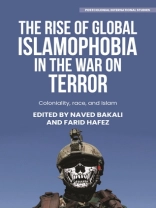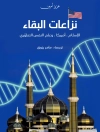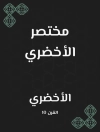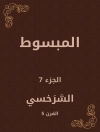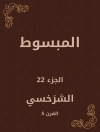The ‘War on Terror’ ushered in a new era of anti-Muslim bias and racism. Anti-Muslim racism, or Islamophobia, is influenced by local economies, power structures and histories. However, the War on Terror, a conflict undefined by time and place, with a homogenised Muslim ‘Other’ framed as a perpetual enemy, has contributed towards a global Islamophobic narrative. This edited international volume examines the connections between interpersonal and institutional anti-Muslim racism that have contributed to the growth and emboldening of nativist and populist protest movements globally. It maps out categories of Islamophobia, revealing how localised histories, conflicts and contemporary geopolitical realities have textured the ways that Islamophobia has manifested across the global North and South. At the same time, it seeks to highlight activism and resistance confronting Islamophobia.
表中的内容
Introduction: understanding Islamophobia across the global North and South in the context of the War on Terror – Naved Bakali and Farid Hafez
Part I: Islamophobia in settler societies
1 The racialised logics of Islamophobia in Canada – Uzma Jamil
2 Islamophobia in Australia: racialising the Muslim subject through War on Terror tropes in public, media and political discourse – Derya Iner and Peter Mc Manus
3 The mainstreaming of Islamophobia in US politics – Todd Green
Part II: Islamophobia in former imperial states
4 Islamophobia in the Netherlands: constructing mythologies surrounding reverse colonisation and Islamisation through politics and protest movements – Leyla Yildirim
5 Criminalising Muslim political agency from colonial times to today: the case of Austria – Farid Hafez
6 Islamophobia in the UK: the vicious cycle of institutionalised racism and reinforcing the Muslim ‘other’ – Tahir Abbas
7 ‘French-style’ Islamophobia: from historical roots to electioneering exploitation – Francois Burgat
Part III: Islamophobia in formally colonised states from the Global South
8 The framing of Muslims as threatening ‘others’ in the tri-border region of Brazil-Argentina-Paraguay – Silvia Montenegro
9 Think-tanks and the news media’s contribution in the construction of Islamophobia in South Africa – Mohamed Natheem Hendricks
Part IV: Islamophobia at the ‘breaking point’
10 India, Islamophobia, and the Hindutva playbook – Farhan Mujahid Chak
11 Islamophobia and anti-Uyghur racism in China – Sean R. Roberts
12 The Rohingya genocide through the prism of War on Terror logic – Naved Bakali
Index
关于作者
Naved Bakali is an Assistant Professor of Anti-Racism Education at the University of Windsor Farid Hafez is a Class of 1955 Visiting Professor of International Studies at Williams College
